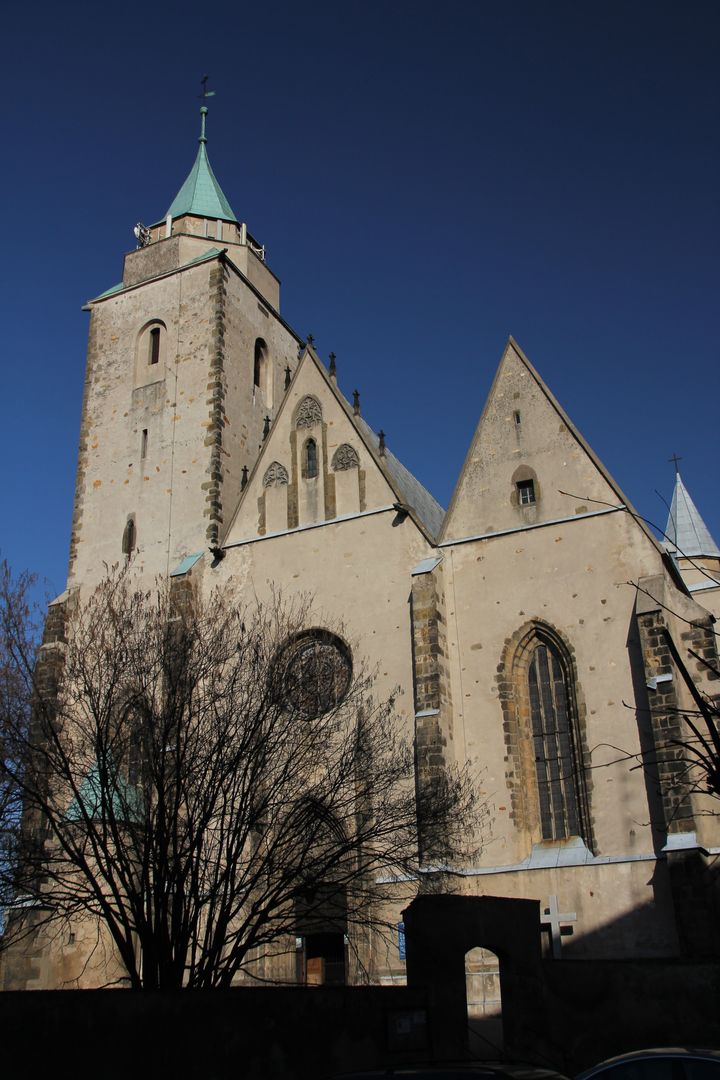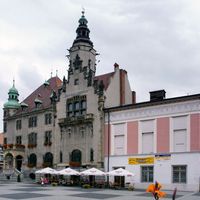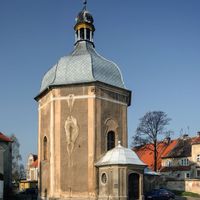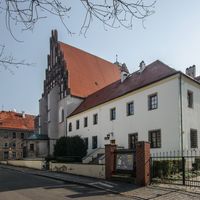Jawor
7.24

Overview
Jawor, a city in the Lower Silesian Voivodeship, boasts a rich history dating back to the Neolithic period, with settlements established around 5000 BCE. Its most significant development occurred during the Lusatian culture (circa 1300–300 BCE), and the first written mention of the city dates to 1242. Jawor became the capital of the Duchy of Jawor, and its history was shaped by events such as the fire of 1203 and the Hussite Wars. In the 16th century, the city emerged as a major center of linen weaving in Lower Silesia, with its population growing to over 3,000 people. Although Jawor suffered during the Thirty Years' War, it endured and experienced growth under Prussian rule in the 18th century, attracting trading corporations and industrial enterprises. Modern-day Jawor is a dynamic place with developed infrastructure, including the Regional Museum housed in a former Bernardine monastery and the Jawor Cultural Center, which organizes diverse artistic events. The city is known for the International Bread Fair, held since 1997, and the Chamber Music Festival "Jawor Peace Concerts." Interestingly, Jawor is historically linked to several notable figures, including Polish volleyball player Aleksander Śliwka and politician Elżbieta Witek. Architecturally, Jawor impresses with numerous monuments, such as the Gothic Church of St. Martin, the Evangelical Church of Peace (a UNESCO World Heritage Site), and the Piast Castle. The city also features remnants of its medieval walls and a neo-Renaissance town hall from the second half of the 19th century. With its rich cultural and historical heritage, Jawor is a dynamically developing city that seamlessly blends tradition with modernity.
Location
Tickets
Powered by GetYourGuide
You can also find here:
2026 Wizytor | All Rights Reserved


